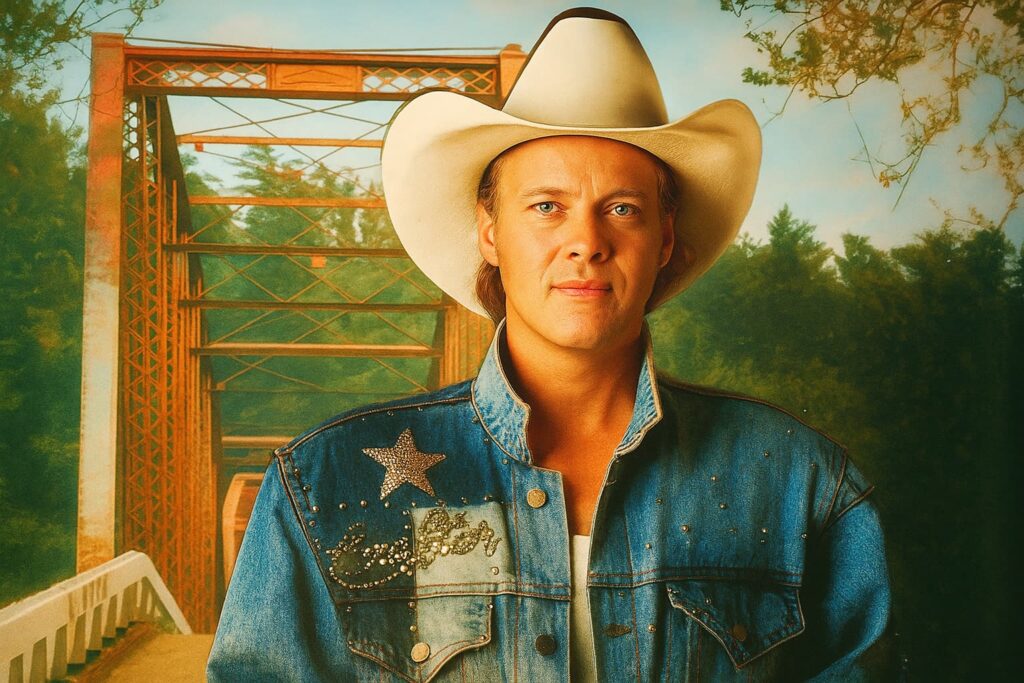
A Melancholy Tale of Unspoken Farewells
As the ’90s dawned, country music was in the midst of a vibrant evolution. A new wave of artists, steeped in tradition yet unafraid to push boundaries, was capturing the hearts of a new generation. Amidst this exciting landscape, one voice stood out for its rich, resonant timbre and an uncanny ability to convey profound emotion with every note: Ricky Van Shelton. A true heir to the honky-tonk tradition, his music was a comforting blend of classic country storytelling and contemporary flair. He was a powerhouse of a vocalist, and while his star had already been burning brightly for several years, it was in 1993 that he delivered a song that would become a poignant, lasting testament to the quiet regrets that linger long after a love has faded. That song was “A Bridge I Didn’t Burn.”
Released in March 1993, “A Bridge I Didn’t Burn” was the second single from his celebrated album, A Bridge I Didn’t Burn. The track quickly resonated with radio listeners, climbing to a respectable No. 5 on the Billboard Hot Country Songs chart. This wasn’t a soaring, celebratory anthem, but a more introspective, mid-tempo ballad that found its success in its relatability and emotional honesty. In an era where country charts were often dominated by upbeat, barn-storming numbers, a song this deeply reflective and wistful stood out, a testament to the fact that audiences were hungry for substance and feeling.
The story behind the song is a simple yet devastating one, a familiar narrative for anyone who has ever experienced the slow, painful dissolution of a relationship. Co-written by Mike Reid and Donny Lowery, the lyrics paint a picture of a man grappling with the aftermath of a breakup. He’s not angry or bitter; there’s no grand, dramatic confrontation. Instead, he’s caught in a state of quiet bewilderment, struggling to understand why things ended the way they did. The central metaphor, the “bridge,” isn’t something he actively destroyed. He didn’t burn it down in a fit of rage, didn’t sever all ties with a dramatic gesture. The bridge is still there, a symbol of the possibility of a future that never was, and the painful knowledge that the opportunity for reconciliation, for one last try, remains.
The true meaning of the song lies in this powerful contrast: the physical existence of the bridge versus the emotional distance that has become insurmountable. It’s a song about the unspoken words and the quiet surrender that often mark the end of a long-term love. The narrator isn’t questioning why the other person left; he’s questioning why he didn’t do more to keep them. The regret isn’t about a fight he had, but about a conversation he never started. It’s about the erosion of a connection over time, the gradual fading of a light that he once took for granted. For listeners, especially those of a certain age, the song evokes a powerful sense of nostalgia, a bittersweet reminder of past loves and the roads not taken. It brings to mind those moments in our own lives where we stood on the precipice of a decision, and for whatever reason, didn’t act, only to be left with the lingering “what if.” Ricky Van Shelton’s soulful delivery, full of genuine ache and vulnerability, transformed this simple story into a universal anthem of quiet heartbreak. He wasn’t just singing the lyrics; he was living them, and in doing so, he allowed us to revisit our own unburned bridges, reminding us that sometimes, the most painful goodbyes are the ones that are never said.